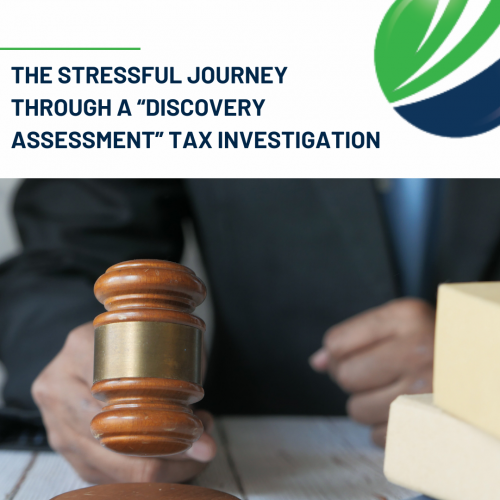The stressful journey through a discovery assessment tax investigation

posted 17th December 2021
Getting that dreaded brown envelope from HMRC and opening a tax enquiry letter into your tax returns can be the start of a stressful experience. You thought you were doing things properly but HMRC are not convinced !
How it starts
An officer at HMRC looks through your tax return and decides they want to delve into the numbers. At this stage, HMRC only see the numbers disclosed on the tax return. It may simply be a case of wanting to see evidence/support for some expenses. The officer then opens an enquiry and will ask you to provide information.
Why me
A small number of tax investigations are random. However, the majority are intelligence led. Be it through information sharing agencies or algorithm (for example your property expenses as a % or your income).
HMRC rights
An officer can make a “discovery assessment” if they discover:
- An amount has not been assessed
- Tax relief is excessive
- The return is incomplete or incorrect
- The loss was careless or deliberate
- The HMRC officer could not, at the time of receiving the information, be reasonably aware, based on the information provided there to be a loss of tax revenue
Time limits
- 4 years is the starting point
- 6 years if the behaviour was careless
- 20 years if the behaviour was deliberate
I wasn’t careless, I followed the instructions on the HMRC website
A common argument but HMRC will always say you should have taken tax advice. You are considered “careless” because didn’t get professional advice if you were unsure. The HMRC website acts as a guide only. Tax computations and returns should be completing by reference to tax law.
How the enquiry comes to a close
HMRC will issue a closure notice. That is, a demand for the unpaid tax together with interest and penalties applied. (You can force them to do this if you cannot agree an outcome)
If you disagree
Once the closure notice is issued, you have options. You could ask HMRC to conduct an independent review, or, proceed to the first-tier tribunal and ask an judge to give a conclusion on the matter of law. The usual process is for each party to suffer their own legal costs, however, be warned a number of factors could mean the losing party ends up with the burden.
Penalty regime
The penalty is charged on the potentially lost revenue (“PLR”). There are levels of penalty and they depend on the nature of the error. The calculations are complex and allocated to the following behaviours and ranges:
1. Non-deliberate (10% - 30%)
2. Deliberate (35% - 70%)
3. Deliberate and concealed (50%-100%)
The rate can be reduced, at HMRC discretion, depending on how helpful you are to HMRC and by giving them full access to your books and records.
Interest
Interest is charged on the tax from the date the payment was due to the date it is actually paid
Suspending tax penalties
By agreement with HMRC, you could ask for the penalty to be suspended for 2 years. This depends entirely on you, the HMRC officer, your tax history and other such factors. It also only applies if the error was not deliberate. A suspension may come with terms, such as engaging a tax advisor to prepare your future tax returns.
Conclusion
As you can see, a tax enquiry is not a walk in the park. The exchanges can become heated, stressful and deadlines to respond can become a further point of pain. The best defence is to hire a qualified experienced accountant in the first place but if you are unlucky enough to receive a letter from HMRC, we would be happy to step in and manage the stress for you and deal with HMRC on your behalf.


